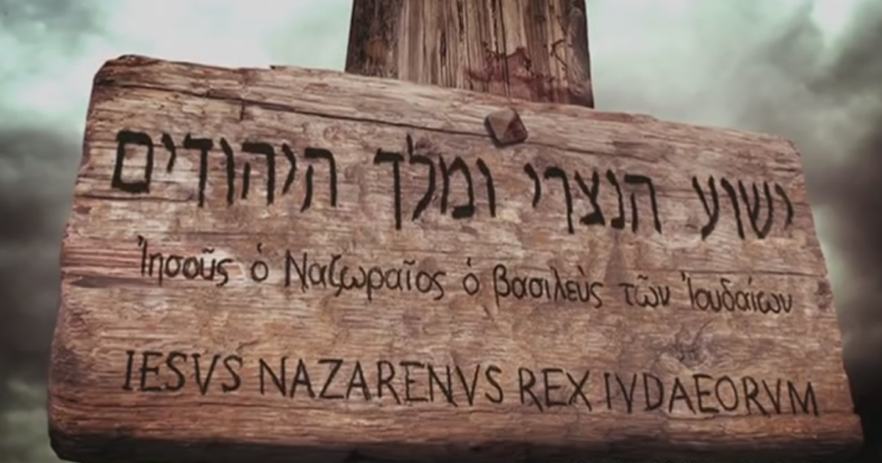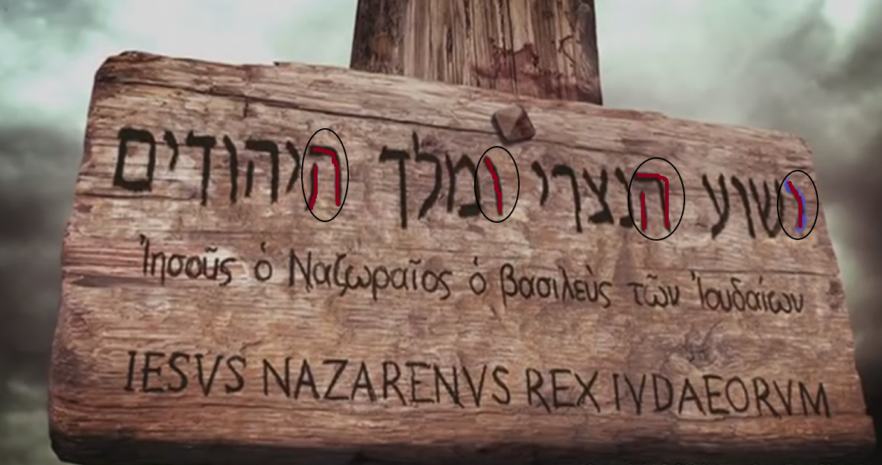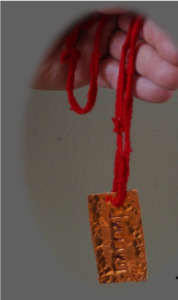
When Yeshua was illegally tried, arrested and nailed to the stake, an inscription was placed above his head that had written in Hebrew, Greek and Latin the words: YESHUA NAZARENE KING OF THE JEWS. The chief priests demanded that Pilate change what he wrote: ‘Yeshua Nazarene King of the Jews’ and instead write ‘he said I am King of the Jews
John 19:21-22 [Hebraic Roots Bible - HRB] 21 Then the chief priests of the Jews said to Pilate, Do not write, The King of the Jews, but that One said, I am King of the Jews. 22 Pilate answered, What I have written, I have written.
<What I have written, I have written> – in Latin Pilate would have said «Quod scripsi, scripsi». It is equivalent to the Latin expression «Dixi» (Latin for “I have said”), meaning that the speaker has spoken and there is no more to be said (Wikipedia).
Why did the Pharisees ask Pilate to change what he had written?
Many think that this was only because they were annoyed that the inscription said: ‘King of the Jews’. But these words written by Pilate and nailed above Yeshua’s head caused tension and anxiety for a profound reason.
They saw something in the Hebrew part of the inscription that shocked and disturbed them. It was a profound message in the acronym of YESHUA HANATSRI V’MELECH HAYEHUDIM.
A native Hebrew would not only read the words of a sentence, but also the acronym in order to find any other hidden message. This is what they would have seen:
| INSCRIPTION WORDS | ACRONYM |
| ישוע (YESHUA) | י (Y) |
| הנצרי (H’NATSRI – the Nazarene) | ה (H) |
| ומלך (V’MELEK – and King of) | ו (V) |
| היהודים (H’YEHUDIM – the Jews) | ה (H) |

Simply put, what they saw above Yeshua’s head was the acronym יהוה, the Hebrew form of the Eternal’s name. The acronym would have changed if they had succeeded in convincing Pilate to change the words of the inscription.
THE INRI ACRONYM
Christianity has used INRI for many centuries. This acronym comes from the Latin
‘IESVS NAZARENVS REX IVDAEORUM’ (‘Jesus the Nazarene King of the Jews’). In Latin, Yeshua was written ‘IESOUS’ as the letter ‘J’ was not yet in use and would not be until many centuries later.
So the acronym INRI: IESVS – I; NAZARENVS – N; REX – R; IVDAEORUM – I, tells us that Yeshua is the King of the Jews but it does not carry the hidden meaning that the Hebrew equivalent does.

LAMBS’ IDENTIFICATION TAGS
When the Yisra’elite families travelled to Yerushalayim (Jerusalem) with their lambs for the Feast of Pesach (Passover), many of them bought or had with them a tag to identify their own lamb. These tags were made of copper or wood, depending on the financial capability of the family. On them was inscribed the name of the owner and tied around the lambs’ neck and this way, any particular lamb could be identified even if it got mixed with the other lambs. Each father would want the Eternal to know that his household was observing Pesach and that the lamb carrying his name was being sacrificed for his family.
The Lamb of the Eternal also had an identifying tag placed above his head with the name of his Father on it. The chief priests must have realised that Yeshua was not only the Lamb of יהוה but also the Son of יהוה as he had told them. Even at his death, Yeshua was identified with the Father and the Father with him.
SCRIPTURE FULFILLED
When we consider the Hebrew inscription, it becomes clear to us as to why it shocked and disturbed the Hebrews so profoundly. On the way to Yerushalayim, everyone who went to the Temple for the Passover could see the acronym יהוה on Yeshua’s execution stake. The priests would have discerned that Exodus 28 was fulfilled in Yeshua where it says that the High Priest had to bear the name of Elohim on his forehead to pile on himself the transgressions of the children of Yisra’el.
YHVH WAS IN MESSIAH
This acronym brings to mind what Shaul writes to the Corinthians
2 Corinthians 5:19 [HRB] . . . YAHWEH was in Messiah who has reconciled the world with His majesty...
When we see this phrase <YHVH was in Messiah> we have to be very careful how we interpret it. For this, we must have two fundamental principles in mind:
a) we have to learn how to read a Hebrew text with Hebrew eyes.
b) we must not apply modern views to texts that were written many centuries ago.
The phrase <YHVH was in Messiah> is not saying that Yahweh is Messiah, it says Yahweh was in Messiah (See YESHUA IS NOT YAHWEH). If we were to interpret this verse as saying that Yahweh is Messiah, we would be committing a serious error.
Some take this verse and put it together with the acronym at the stake and say Yeshua is Yahweh and vice-versa. Keep in mind that Sha’ul also wrote:
2 Corinthians 5:17 [HRB] So that if anyone is in Messiah, he is a new creation
This does not mean that anyone in Messiah is Messiah, it would be complete nonsense. The same principle applies to <YHVH was in Messiah>, it does not mean that Yahweh was the Messiah. It is not the first time that this occurs in Scripture. There is an enigmatic verse in Exodus 23 that can help us understand what <in Messiah> means
Exodus 23:20-21 [HRB] 20 Behold, I am about to send a messenger{angel} before you, to guard you in the way, and to bring you to the place which I have prepared. 21 Be on guard before Him, and listen to His voice. Do not be rebellious against Him, for He will not forgive your transgressions; for My name is in Him.
This was said of a messenger (angel), not the Messiah. Remember that Messiah was not a pre-existing angel that was made flesh and came to earth, as some teach. If this were so, it would contradict Scripture
Hebrews 1:5 [TS] For to which of the messengers{angels} did He ever say, “You are My Son, today I have brought You forth”? (Psalm 2:7)
According to this verse, Yeshua was never an angel (See WAS THE WORD IN JOHN 1 MADE FLESH?).
In Hebrew thought, the word ‘name’ is not only a way of identifying a person. A name represents the person, with all the attributes of that person. When Yahweh says <My name> it means my person, everything that I am, all my attributes and characteristics, my power, my authority, my dominion. A name means the totality of the person. This is why Scripture says <Blessed is He who is coming in the Name of יהוה> (Psalm 118:26).
<My name is in him> means my total being, my authority and my power are legally in him to perform the function that I have entrusted him.
In the same way that Yahweh was in the angel, Yahweh was in Messiah.
Messiah was representing the Father. He was performing a mission under the authority of Yahweh, he was not doing it alone.
On the day he died at the stake, the acronym above Yeshua was that of the One he represented יהוה, his Father Yahweh, the Eternal.
Sources:
Malkiyel Ben Avraham (Ricardo Andres Parra Rubí); Navah; Dan Ben Avraham
Translation by Nazarene Notes